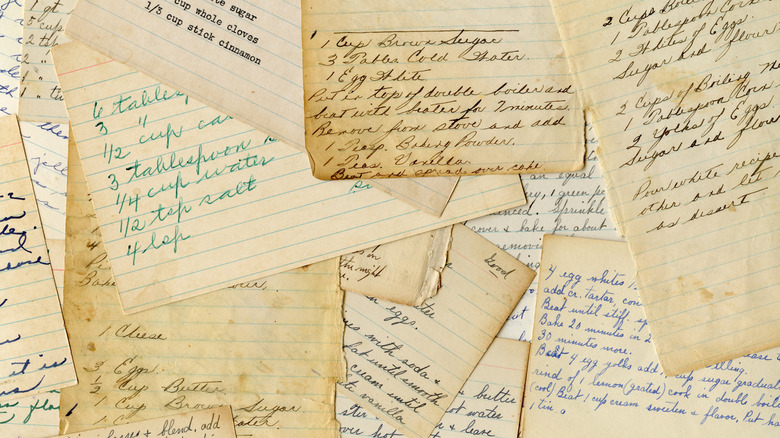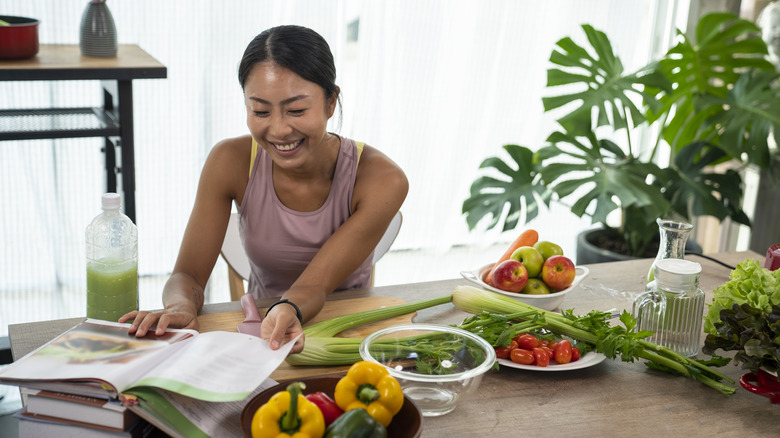The Reason It's So Hard To Copyright Recipes
Considering how much work can go into an original recipe — ingredient sourcing, countless experiments, even academic research — it feels unintuitive that you can't simply copyright your creation. The main reason for this is that the law considers recipes to be a mix of ideas and facts — and ideas and facts are not copyrightable. If all you do is create a list of ingredients and some straightforward instructions, it will be seen as a factual document that helps others recreate the idea.
This might sound unfair at first, but if you imagine how things would go if we started copyrighting facts and ideas, it soon starts to make sense. For instance, once one person creates and copyrights the classic mac and cheese recipe, no one else could share that recipe again. And how much would you need to change to make a recipe your own? Use 160 grams of cheese instead of 150 grams? That sounds like it would get complicated pretty fast.
The fact that ingredients and instructions aren't copyrightable is also linked to the concept of secret recipes. The original Coca-Cola recipe is famously locked away in a vault in Atlanta because that's the only way to protect it. If the recipe went public, there would be nothing Coca-Cola could legally do to stop people from reproducing it as they pleased.
Is it possible to copyright a recipe?
However, just because the core concept of a recipe isn't copyrightable doesn't mean you can't protect your hard work. All you have to do is transform your recipe from a simple idea into an original and creative expression of that idea.
This is known as the idea-expression dichotomy, and it's why recipe blogs and cookbooks contain more than just the recipe itself. By including stories, explanations, anecdotes, photos, illustrations, and other forms of original and creative content, you can turn your recipe into an original work of authorship — and these are automatically protected by copyright law. You can also level up your protection by registering your work. Either way, no one can copy your work in full and call it their own.
They can, however, take the ingredients and the instructions (i.e. the core recipe) and use them however they want — because those parts still aren't covered by the copyright. In an ideal situation, people would make their own tweaks and changes to the original recipe, producing new creative works for everyone to enjoy.
So, there are two takeaways here. Firstly, if you want to share a recipe and make sure it's protected, you should take some tasty photos and write up some blog content to accompany it. Secondly, if you see a recipe that you want to create your own version of, that's totally okay — even if the recipe is part of a copyrighted work.

